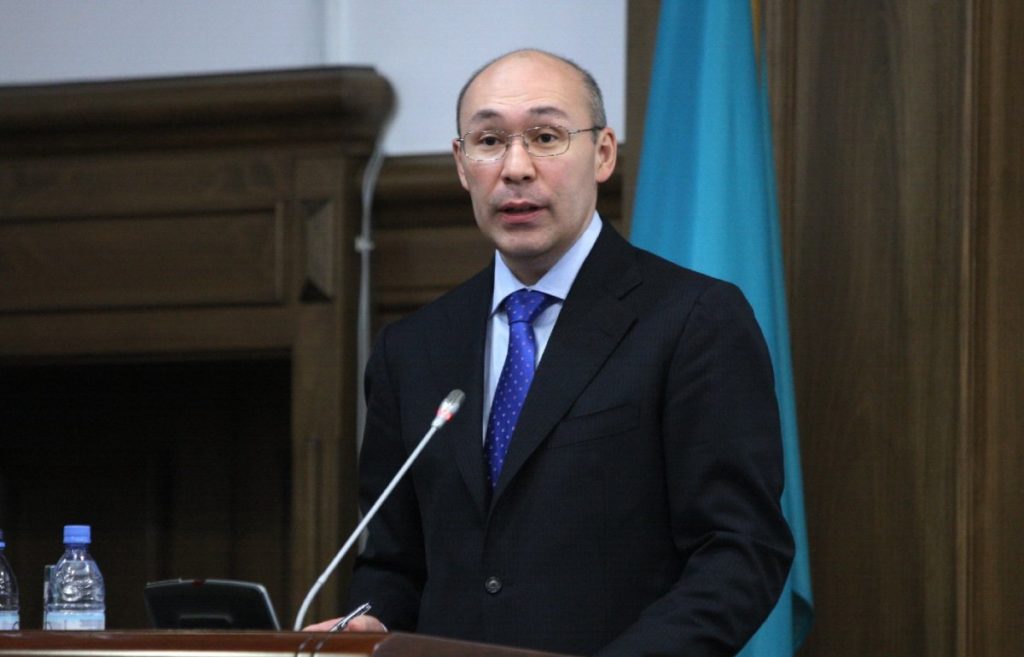Prime Minister of Kazakhstan Askar Mamin, during a government session on Aug. 20 discussed the work of the Astana International Financial Centre (AIFC). An opinion by columnist Doszhan Nurgaliyev was published in the Aug. 26 issue of Kazakhstanskaya Pravda. That opinion is reprinted below edited for space and style.
Delivering a report, Governor of the Astana International Financial Centre Kairat Kelimbetov said the AIFC had formed its own legislation, had adopted about 70 rules of general application and financial regulation, had prepared the necessary infrastructure and all structural units and organisations were fully functioning. The total number of registered enterprises of the AIFC regulator has increased to 235 companies from 26 countries (United States, the United Kingdom, Switzerland, China, Hong Kong and others), including large financial institutions such as the China Development Bank, China Construction Bank, and the largest investment banks, such as Wood & Co from the Czech Republic and and CICC based in Hong Kong. By the end of 2020, the total number will grow to 500 organisations.
In November 2018, the Astana International Exchange (AIX) was launched. Global leaders in the financial industry, such as the Shanghai Stock Exchange, Nasdaq, Silk Road Fund and the largest U.S. investment bank Goldman Sachs, became strategic partners and shareholders of the exchange, providing access to investment liquidity in these vast regions.
“In less than one year of AIX operations, the amount of equity capital raised accounted for over $70 million. According to the results of the first half of 2019, the total capitalisation of the AIX amounted to $ 1.9 billion,” Kelimbetov said.
The AIFC, together with the European Bank for Reconstruction and Development (EBRD), will continue the project to advance the capital market and upgrade its status in the global MSCI index to the level of developing economies. To facilitate the transition of Kazakhstan to a green economy and sustainable development, the AIFC, in cooperation with the EBRD, adopted the Concept of a Green Financial System for Kazakhstan, the AIFC Strategy for its implementation and set the rules for issuing green bonds in the AIX.
As part of digitisation, the eJustice online dispute resolution system, unique for the region, was launched at the beginning of this year, allowing parties to a dispute to file an action with the AIFC Court electronically from any part of the world.
“In general, all this allowed our centre to take 51st place in the Global Financial Centres Index and first place among similar centres in Eastern Europe and Central Asia, ahead of Istanbul, Warsaw, Budapest, Moscow and Baku,” the AIFC Governor noted.
Meanwhile, in order to further develop the country’s financial platform, especially the AIFC legal jurisdiction, the Government approved a draft amendment to the Constitutional Law on the Astana International Financial Centre. According to Kelimbetov, the main objective of the investment tax residence programme is to attract foreign private capital to the country in exchange for the investors and their families receiving a multiple-entry visa to Kazakhstan. In addition, the bill provides for the AIFC authorities to adopt acts regulating labour relations and procurement procedures. The new legislative initiatives help to create an attractive investment climate and build investor confidence.
In his turn, the First Vice Minister of Finance Berik Sholpankulov noted that nowadays the market for investment residency is globally experiencing a period of significant growth. In the framework of their own programmess, financial markets attract from $500 million to $1 billion investments in total.
Nowadays, there are more than 80 similar programmes that offer two types of residence programmes. The first type is implemented in countries, such as the United States, Canada, Spain, Latvia and Greece, providing residence permits in exchange for investment. The second type suggests acquiring an investment visa and tax residence of the country, similar to the investment tax residence programme, and is implemented in Italy, Switzerland, Cyprus, and the United Kingdom. In Kazakhstan, it is proposed to apply the second type of the programme, which is the investment tax residence programme.
“Thus, the bill provides for the concept of ‘investment resident’ and the programme of “investment tax residence,” said Sholpankulov.
Potential investors will invest their funds in financial instruments and securities traded on the AIFC exchange. At the same time, it is proposed to exempt investment tax residents from paying individual income tax on income received from sources located outside of Kazakhstan. Income generated within our country will be taxed in accordance with the tax code.
“This measure is targeting investors seeking to optimise their tax expenses, thereby increasing the investment appeal of the country,” said Sholpankulov.
The second set of amendments includes clarifying standards related to the activities of the AIFC. For example, the bodies of the Astana International Financial Centre will be entitled to adopt acts regulating labour relations and procurement procedures.
In general, as stressed by Sholpankulov, the launch of the investment residence programme in Kazakhstan is aimed at significant investments in the long run.
Summing up consideration of the matter, Mamin noted that the current amendments to the constitutional law will ensure the rapid establishment and development of the AIFC as the country’s main financial platform and the use of its jurisdiction to attract and protect investments. At the same time, he instructed to continue improving the activities of the financial centre.

